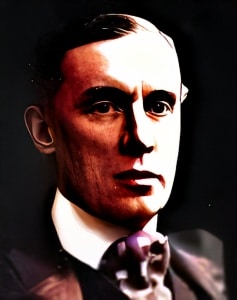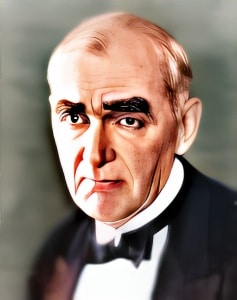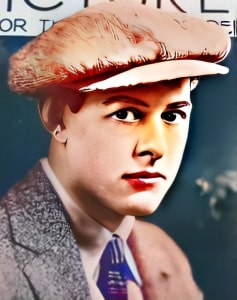 Wheeler Oakman (1880-1949) was an American actor who made significant contributions to the early years of American cinema.
Wheeler Oakman (1880-1949) was an American actor who made significant contributions to the early years of American cinema.
Born on February 21, 1880, in Washington, D.C., Oakman had a successful career in both silent and sound films, known for his versatility and ability to play a wide range of roles.
Oakman’s acting career began in the early 1910s during the silent film era. He quickly established himself as a character actor, often playing supporting or antagonist roles in various film productions. His distinctive appearance, with a pencil mustache and often portraying suave or villainous characters, made him a recognizable figure on screen.
One of his notable early roles was in the 1916 silent film “ Intolerance,” directed by D.W. Griffith. In this epic historical drama, Oakman played the role of Charles IX of France, a character within one of the film’s interwoven stories. “ Intolerance” is considered one of the landmarks of silent cinema and showcased Oakman’s adaptability as an actor.
As the film industry transitioned to sound in the late 1920s, many silent film actors faced challenges in adapting to the new medium. Wheeler Oakman, however, successfully made the leap to sound cinema, continuing his acting career in films with spoken dialogue.
One of his sound film appearances was in the 1931 film “The Public Defender,” a crime drama directed by J. Walter Ruben. In the film, Oakman played a supporting role, displaying his adaptability as an actor in the changing landscape of the film industry.
Wheeler Oakman’s distinctive appearance and ability to portray both charming and menacing characters made him a sought-after character actor in Hollywood. He appeared in numerous silent and sound films, spanning various genres, including crime dramas, Westerns, and comedies.
While he may not be as widely recognized as some leading stars of his time, Wheeler Oakman’s contributions to the early years of American cinema are remembered as an important part of Hollywood’s history. His ability to adapt to changing technologies and his talent as a character actor marked him as an influential figure in the film industry during a transformative period.
He continued to work in films until his retirement from acting. Wheeler Oakman passed away on March 19, 1949, marking the end of a career that played a crucial role in the early development of American cinema. His work remains a part of the rich history of the film industry, reflecting the collaborative and pioneering spirit of the early film era. Wheeler Oakman’s unique presence on screen continues to be appreciated by film enthusiasts as a testament to the diversity of talent in early cinema.
Loading live eBay listings...




